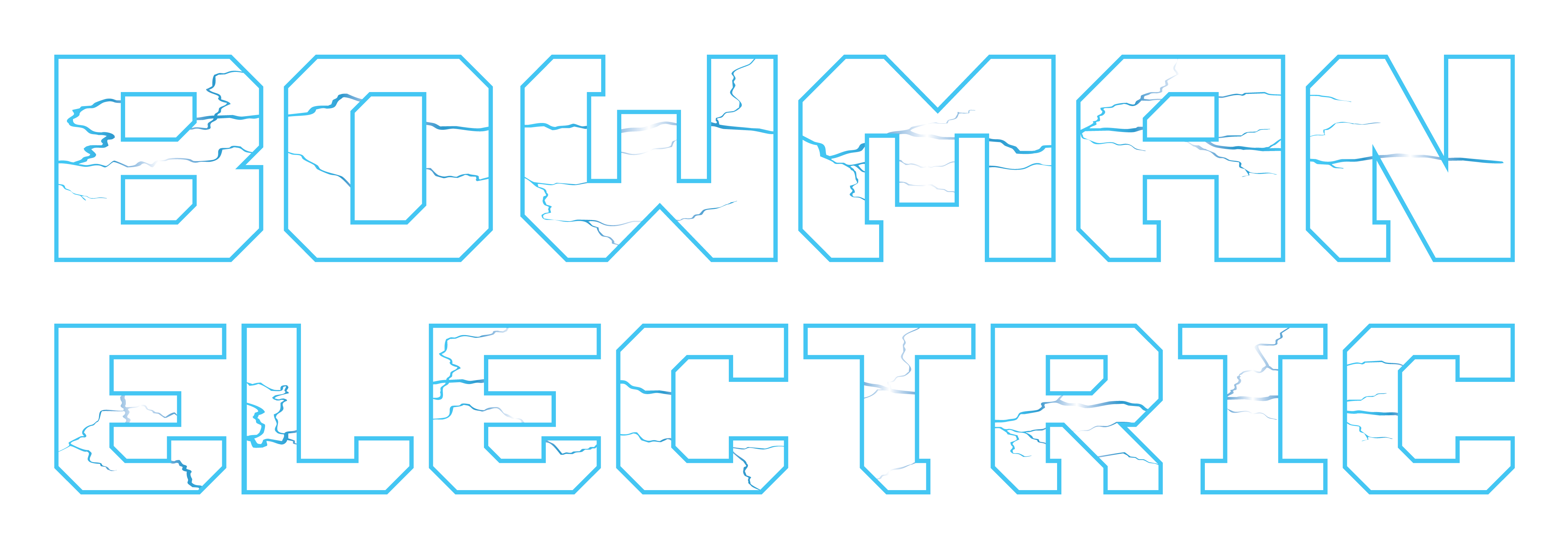
As winter approaches, our home offices can become a crucial hub for both work and warmth. With shorter days and colder weather, it’s essential to create a workspace that keeps productivity high and comfort levels even higher. Here are some practical electrical tips from Bowman Electric to ensure your home office stays efficient and cozy all season long.
1. Optimize Lighting for Shorter Days
Winter means less natural light, which can lead to eye strain and reduced energy levels. Here’s how to maintain bright, productive lighting:
Install LED Desk Lamps: These lamps provide ample lighting and are energy-efficient, lasting longer than traditional bulbs.
Layer Your Lighting: Combine overhead lighting with task lighting. Adjustable LED desk lamps can help reduce eye strain during evening hours.
Consider Smart Bulbs: Smart bulbs with adjustable color temperatures can mimic daylight, enhancing focus during the day and relaxing warm tones for the evening.
2. Upgrade Your Electrical Outlets
With an increase in digital devices, power requirements can add up quickly. Avoid the frustration of overloaded circuits or multiple extension cords by considering these upgrades:
Install USB Outlets: USB outlets eliminate the need for adapters, providing an easy way to charge multiple devices simultaneously.
Add Power Strips with Surge Protection: Protect your devices from winter power surges due to storms. Power strips with built-in surge protection ensure your electronics stay safe.
Consider a Dedicated Circuit: If you’re using high-powered devices like space heaters or multiple monitors, a dedicated circuit for your home office can prevent breaker trips and keep your setup running smoothly.
3. Invest in Smart Heating Solutions
Keeping your office warm without overheating the entire home can be a challenge, but there are smart solutions available:
Smart Thermostats: With programmable schedules, smart thermostats help maintain a comfortable temperature only when you’re in the office, saving on energy costs.
Heated Floor Mats or Personal Heaters: These can provide targeted warmth without relying on your home’s central heating system. Make sure any portable heater has a tip-over switch and is plugged into a properly rated outlet for safety.
4. Maintain Healthy Air Quality
Spending more time indoors during winter can affect air quality, which impacts comfort and focus. Adding an air purifier or humidifier can help:
Choose Energy-Efficient Air Purifiers: Many air purifiers now come with high-efficiency particulate air (HEPA) filters that improve air quality by removing allergens and pollutants.
Use Smart Plugs: With a smart plug, you can automate your air purifier or humidifier, making sure they run only during work hours to save energy and maintain comfort.
5. Ensure Your Wi-Fi and Wiring are Winter-Ready
Connectivity is key in a productive home office, but winter storms and increased power usage can impact your network’s reliability. Here’s how to keep everything online:
Surge Protectors for Routers and Modems: Power surges from winter storms can damage your network equipment. Investing in surge protectors will help protect these devices.
Consider Ethernet Wiring: For a more reliable connection, consider hardwiring your computer to the router with an Ethernet connection, reducing the chance of dropped Wi-Fi signals during critical calls or video meetings.
6. Schedule a Winter Electrical Check-Up
Lastly, a seasonal check-up can identify any wiring or electrical panel issues that may arise during winter. A licensed electrician can assess your home office’s needs, from panel capacity to safety inspections for any new devices or wiring.
Creating a winter-ready home office means thinking about more than just workspace ergonomics. With thoughtful electrical upgrades, you’ll stay productive and comfortable, no matter how low the temperatures drop. For help with any of these upgrades, reach out to Bowman Electric today—your comfort, productivity, and safety are our top priority this winter.


